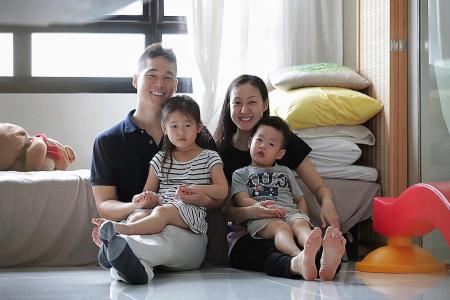Doctors in Singapore feel safe with support, equipment in virus fight
Nine in 10 family doctors in Singapore feel safe with the support and equipment they have been given, and prepared for the fight against the coronavirus, a study has shown.
Of the 216 polyclinic doctors and general physicians (GPs) surveyed, about eight in 10 also said they would share with their loved ones the nature and risk of their work.
The study, conducted between March 6 and 29, was released to mark World Family Doctor Day today.
It asked doctors from the National University Health System's polyclinics and family clinics as well as members of the College of Family Physicians Singapore to fill up an online questionnaire.
Its principal investigators told The Straits Times that the study is the first in South-east Asia to examine the psychological and social impact of Covid-19 on primary care physicians (PCPs).
Associate Professor Tan Ker Kan of the National University of Singapore's Yong Loo Lin School of Medicine said they wanted to focus on GPs and polyclinics as other studies had looked at healthcare workers in other areas like acute hospitals.
"PCPs undergo a lot of stress during the pandemic, and I felt it should be highlighted," said Dr Tan.
"They are often the first to see potential Covid-19 cases, and to decide whether to refer them to NCID (National Centre for Infectious Diseases)."
He estimated that seven in 10 cases of local Covid-19 transmission in February and March had first visited a PCP before being diagnosed, based on public data from the Ministry of Health (MOH).
Dr Hou Minsheng, one of the survey's interviewees, recalled a patient whom he treated at Choa Chu Kang Polyclinic's "red zone" for potential Covid-19 cases.
The man had a fever and was short of breath, but it turned out that he was suffering a serious form of heart attack. He was taken to a hospital immediately.
The study also found that more than nine in 10 accept the risk of infection as part of their job, and prioritise patient care.
FOR MORE, READ THE STRAITS TIMES
Get The New Paper on your phone with the free TNP app. Download from the Apple App Store or Google Play Store now



